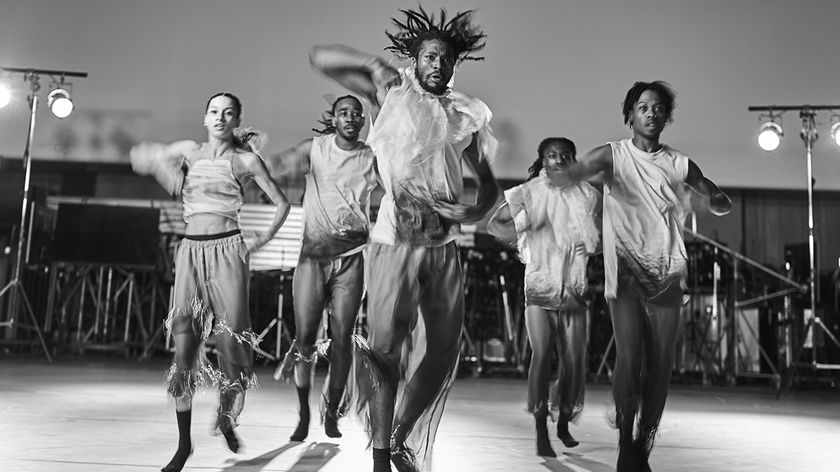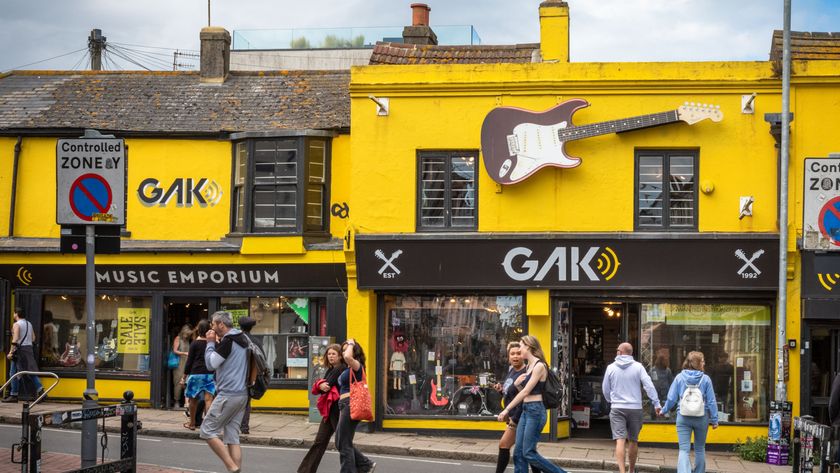XTC's Colin Moulding: “Even if your bass playing doesn’t stand out, but you serve the song well, you’ve done your job”
The bassist and songwriter on gear, career and his new Scatter Me EP
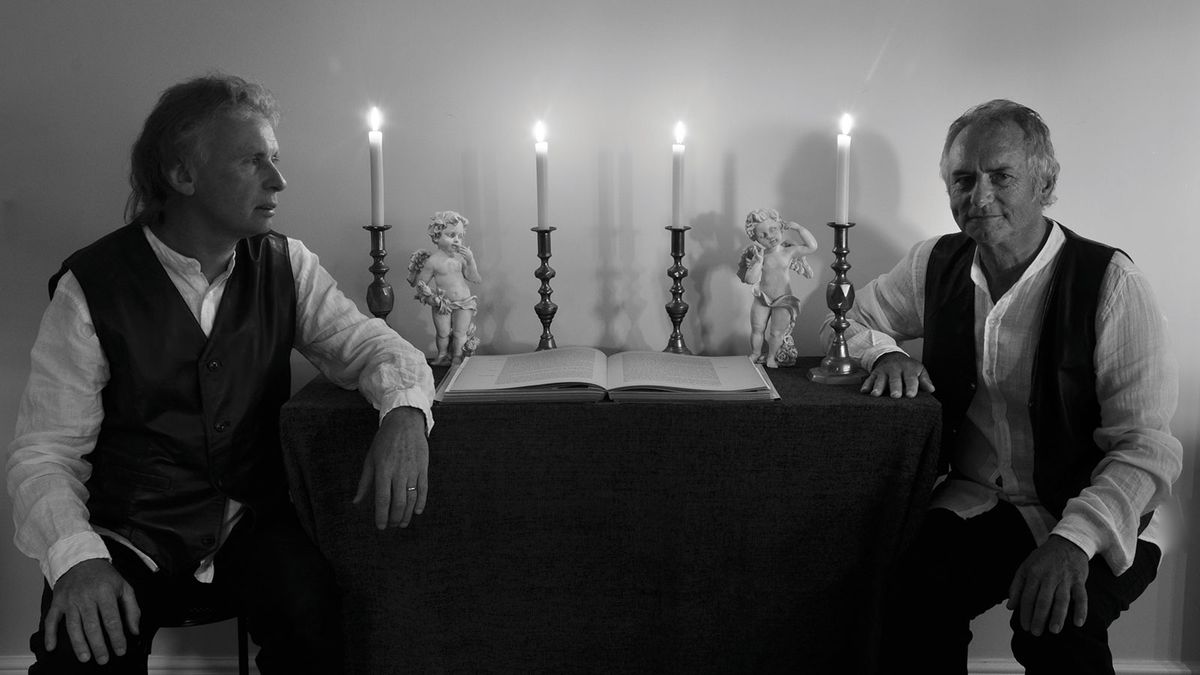
You might not know that the cult band XTC came from Swindon, and you might not know that they’re famous for not becoming very famous - but you’ll probably have heard their first major hit, Making Plans For Nigel, written and sung by their bassist Colin Moulding in 1979.
Although Moulding was a considerably less prolific songwriter than the band's frontman Andy Partridge, his compositions were often chosen as singles due to his natural mastery of the catchy melody - a mastery that makes his new project, a band with sometime XTC drummer Terry Chambers, all the more welcome.
The duo, who are now working under the name TC&I, have recorded a four-song EP called Great Aspirations, which fans of Moulding’s singing and bass playing will be sure to enjoy. His bass playing, like the man himself, is deceptively unassuming, but it always serves the song - and that is his great strength.
Often described as melodic and innovative, whether it’s simple or complex, there is always something interesting for the discerning listener to discover in his playing. It’s been 12 years since Moulding parted ways with Andy Partridge and XTC ceased to function in any meaningful sense, so when the bassist and I sat down in his local pub for a chat over lunch, we had plenty to talk about.
How have you ended up back in the recording studio with Terry after all these years, Colin?
“I toyed with the idea of a new project and did one song, but wasn’t very happy with the result - and then Terry arrived on the scene. He’d come back after 34 years in Australia. We went to a pub one Sunday night and got absolutely plastered, and I said ‘Do you fancy doing a bit of drumming on this thing I’m working on?’ It was then that the project took on some purpose.”
Speaking of the studio, where did you record the songs?
Get the MusicRadar Newsletter
Want all the hottest music and gear news, reviews, deals, features and more, direct to your inbox? Sign up here.
Terry had come back after 34 years in Australia. We went to a pub and I said ‘Do you fancy doing a bit of drumming?’
“In my garage. We bought some microphones and used some of the old XTC gear which I inherited. Andy Partridge had had first choice of the gear, and what was left I combined with other stuff that we bought, and made a start from there. The budgets for XTC records were £150,000 to £200,000 - but the budget for this EP was infinitely smaller, I can tell you!”
How did you find working with Terry after all this time?
“We were born in the same town within a month of each other. Something about the way he plays his bass drum, and the way my bass sits on the top of it, has always been a good match. I don’t know, it’s just something in the water, I think. It’s not that I didn’t get on with the other session drummers we used, it’s just that this was natural; you feel comfortable.”
Did you spend less time on the bass parts compared to the old XTC records?
“Possibly. The bass parts went on last, and because the chords were so dense in places I didn’t really want anything too busy. I like things that happen intuitively, so I don’t want to consider it too much - but when you’re spinning a lot of plates, that’s possible.”
Career and gear
What bass guitars have you used over the course of your career?
“Many, over the years. I started off with cheap Fenders, a Musicmaster and a Mustang, because they’re easy to use when you’re playing live. I favour shorter-necked guitars because they’re easy to chuck around when you’re singing.
My 1965 Fender Precision is a big beast and I was always putting my hand out to eternity to try and grab the end fret
“My 1965 Fender Precision is a big beast and I was always putting my hand out to eternity to try and grab the end fret. I played a good deal of my XTC career on a Wal bass, which I’ve still got. In those days I used to play with my fingers and you needed something a little brighter for the edge. It was heavy, though - every time I played it in the studio, it was resting on my knee!”
If you had to choose a favourite, which would it be?
“My favourite instrument of torture is a Fano bass, given to me a few years back by Dennis Fano; it’s a semi-acoustic with a nice woody tone. I’ve also got a Vox Apollo, which was made to commemorate the 1969 Moon landings, and was given to me by T-Bone Burnett when I did a session for him on a Sam Phillips record in the 90s. He wanted an old-fashioned bass sound, so we went to a local music shop in LA. I tried about 25 different bass guitars before we found the Vox. It’s got a nice weighty low end on it, but engineers hate it because it’s hard to record.
“Then again, I’ve also got an Epiphone Newport, which I bought in 1979, not because I like the sound of it but because I like the look of it! It has a light body, a narrow neck and it’s easy to play. If you totted up all the hours I’ve played bass, the Newport would far outweigh all the others.”
What other gear do you use?
“I’ve got a Gallien-Krueger 150w combo with a 4x10 cab, and I tend to go for flatwound strings in the studio, played with a pick for that 60s sound. Live I go for roundwounds because they cut through a little bit more.”
Any effects?
“Not really. I just leave the engineer to compress the hell out of it. The chap at Chipping Norton studios used to say, ‘I’ve got six compressors on your bass, Colin, and I still haven’t wrestled it to the ground... yet!’ What am I supposed to deduce from that? Get another bass, basically!”
Starting out
How did you first start playing bass?
“Did I make the assumption that four strings were easier than six? Possibly... I found myself playing along to Deep Purple records because I could play the riffs quite easily and you could get some level of accomplishment. Fire And Water by Free, from 1970, was probably the record that first attracted me to the instrument.
I was taken by Andy Fraser’s bass playing because he left holes; it was the first time I heard bass playing that sparse
“I was taken by Andy Fraser’s bass playing because he left holes; it was the first time I heard bass playing that sparse. I liked his sound too - I used to think that his bass sounded like an elastic band. Maybe his playing started me off, I dunno. I quite liked the ‘balls of bass’ sound of Paul McCartney around 1966 too. I think he used a Rickenbacker through a Fairchild compressor with the top rolled off.”
How long do you normally spend working out a bass-line?
“Not very long. With the early stuff, we rehearsed it at soundchecks and played live, and it grew from there. For the later XTC stuff, I had a four-track portastudio and I would ask the engineer to put the track, as it stood, on two of the four tracks of the tape. That way I could play along to it.”
Is the song Scatter Me on the new EP about scattering your ashes?
“Yeah... it’s not what you want to hear, perhaps, but I think there’s a certain romance about it, you know? It’s quite melancholy, very English Gothic. I had this line, ‘Scatter me far and wide’, and that became something I could build on. These lines just come into your subconscious, like a letter that drops on the mat. I think it’s probably one of the best songs I’ve ever done. The thing about XTC was that we didn’t really appeal to women, so when my wife said she liked Scatter Me, I thought, ‘I’ve fucking cracked it’. I’ve tried to write a song for her all these years, and now I think I’ve done it.”
How did you get the bass sound on that song?
“That’s my Fano bass plugged into one of those Line 6 Pods. I limited the hell out of it with my 1176 Limiting Amplifier and then recorded it straight in. Stuart Rowe, our engineer, managed to wrestle it to the ground.”
Was it liberating to be in complete artistic control this time round?
“Yes. It was very fine to be making the decisions. We no longer have our taskmaster! But Andy’s great, you know. I learned a lot from him, no doubt about it.”
Have you got any wisdom for our readers?
“I think even if your bass playing doesn’t stand out, but you serve the song well, you’ve done your job. That’s it!”
Great Aspirations by TC&I is out now.


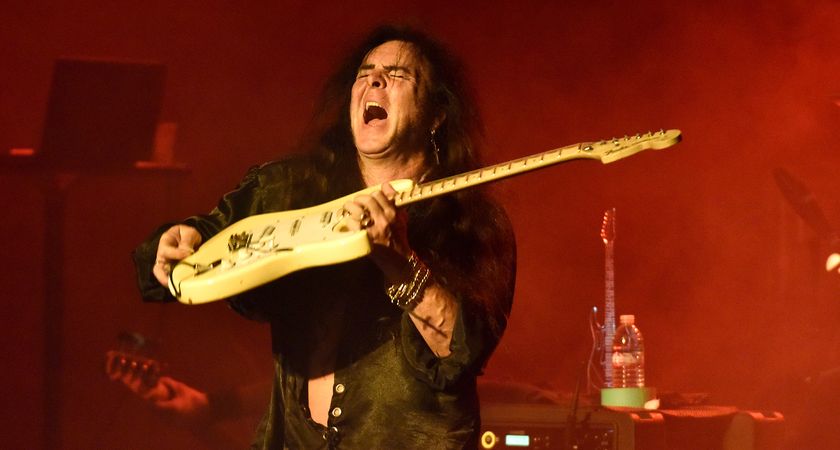
“Those arpeggios... That was the sickest thing I ever heard”: Yngwie Malmsteen on why guitarists should take inspiration from players of other instruments if they want to develop their own style
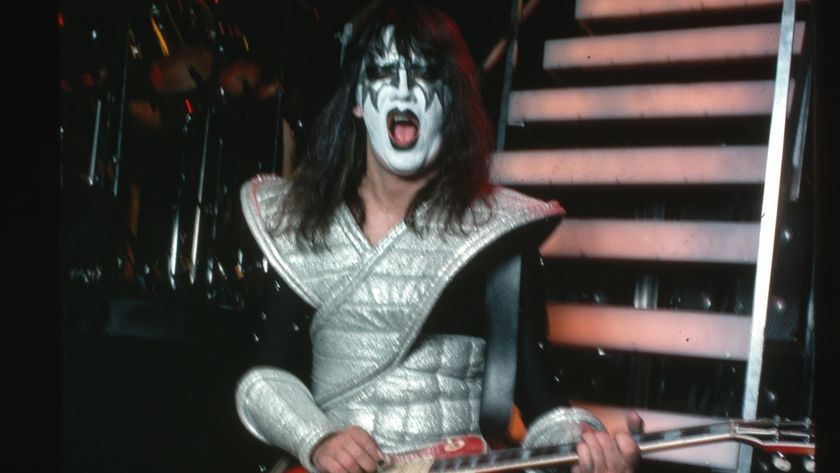
“I used a flange on the main riff and a wah-wah on the solo. I just said, ‘Hit the record button and I’ll let it rip!’”: Kiss legend Ace Frehley on his greatest cult classic song





